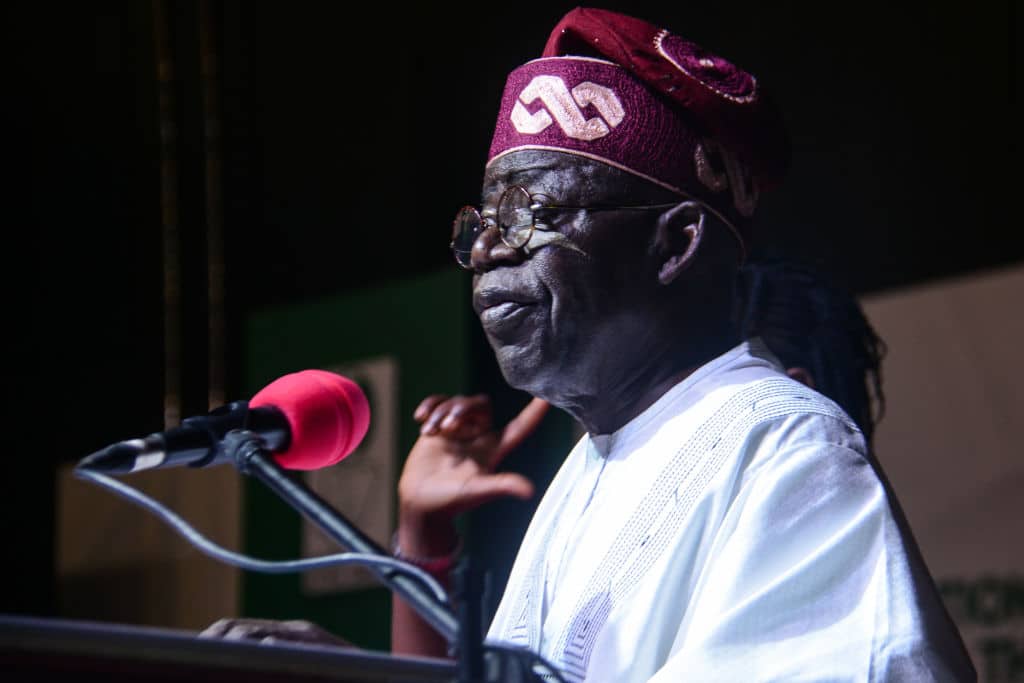To be the leader of Nigeria, Africa’s biggest and most populous nation, there are several political nuances to be borne in mind. Firstly, Nigeria with an estimated population of about 210 million people, is made up of tribes with over 500 languages. That means to assume power, one has to be able to have a wide base of support and in the past that support has shifted between the majority Christian South and the predominantly Muslim North.
In order words, if a southern (Christian) leader emerges, he strategically appoints a Northern (Muslim) Vice President and vice versa, in order to increase the amount of support needed to facilitate a peaceful rule.
So, when Senator Bola Ahmed Tinubu, a Muslim political godfather and someone widely considered as instrumental in the fight for Nigeria’s democracy, decided to run for the country’s top political position under the All Progressives Congress Party (APC) by appointing another Muslim second in command, there was uproar across the political ecosystem in Nigeria.
Many believed that the strategic blunder would prove to be his undoing but against all odds, Tinubu has emerged victorious in the recently concluded election amassing 37% of the total votes with over 8.8 million votes. His closest competition, Atiku Abubakar under Peoples Democratic Party (PDP) secured 29% of the votes with 6.9 million votes and the surprise entry of Peter Obi under the Labour Party coming in at third place with 25% of votes accounting for 6.1 million.
However, the win is currently being disputed by the opposing parties.
There were widespread reports of many Nigerians not being able to vote due to late starts and violence in several polling stations. Furthermore, the new innovative solution introduced by the Independent National Electoral Commission (INEC) reportedly did not work. The Bimodal Voter Accreditation System (BVAS), which was meant as a solution to remove election rigging and provide transparency in the voting system, was allegedly not working across several polling stations.
In all, 93 million Nigerians were registered to vote and out of those, 87 million people collected their voting cards ahead of the elections. However, INEC reports the lowest voter turnout since 1999.
“So where did all the people who queued for hours to collect their voter cards go? Some spent over five hours in lines just so they could vote and you mean to tell me they went through all that problem only to not vote? Impossible. The problem was the disruptions at the polling stations,” says Tonye Bello, an MBA student in Lagos.
“Like many other elections, this election has many setbacks, ranging from the snatching of ballot boxes, stuffing of ballot papers to the inability of INEC staff to upload results at the polling units. This last reason has made many to doubt the independent electoral umpire,” says Paul Alaje, a Senior Economist and Partner with SPM Professionals.
Despite these concerns, there are also many who believe the results are not that far-fetched. Tinubu is not new to politics or governance for that matter. He brought widespread innovation and growth under his tenure as a two-term governor of Lagos State. Widely respected as a political strategist, he was instrumental in securing the Presidency for outgoing Muhammadu Buhari and one of the few leaders who have made friends across the Niger.
“The just-concluded presidential election was not without setback for Senator Tinubu even though he won the majority vote, he didn’t win the absolute majority as declared by INEC. This is because Senator Tinubu is a Muslim from the South who chose another Muslim as his Vice President from the North; this has affected the usual practice of Christian-Muslim, Muslim-Christian president and vice president in Nigeria,” says Alaje.
The Christian-Muslim population in Nigeria is almost 50% of the entire population. This was perhaps why it was not a surprise when Tinubu lost his strongest hold, Lagos State, a place that he has always won elections since 1999, to Peter Obi.
In any case, if the win is upheld by the Electoral Commission, Tinubu has his work cut out for him. He must immediately grapple with declining economic growth in Nigeria as well as insecurity across many parts of the country alongside unprecedented youth unemployment. The general opinion of Nigeria’s youth is that a younger president would have been preferred instead of the political old guards who are wealthy and as a result out of touch with the needs of the everyday Nigerian.
“As this announcement was made, many lovers and believers of Tinubu, as well as his party celebrated his win, however the critical stakeholders have kept mute till now. The Nigerian youth and business communities have not made any official comments regarding this victory. At best we can say, victory has been declared depending on each person’s perspectives and political affiliation,” says Alaje.
The coming weeks will be critical to see if this win is upheld or Nigerians are made to return to the polls for a second time.
